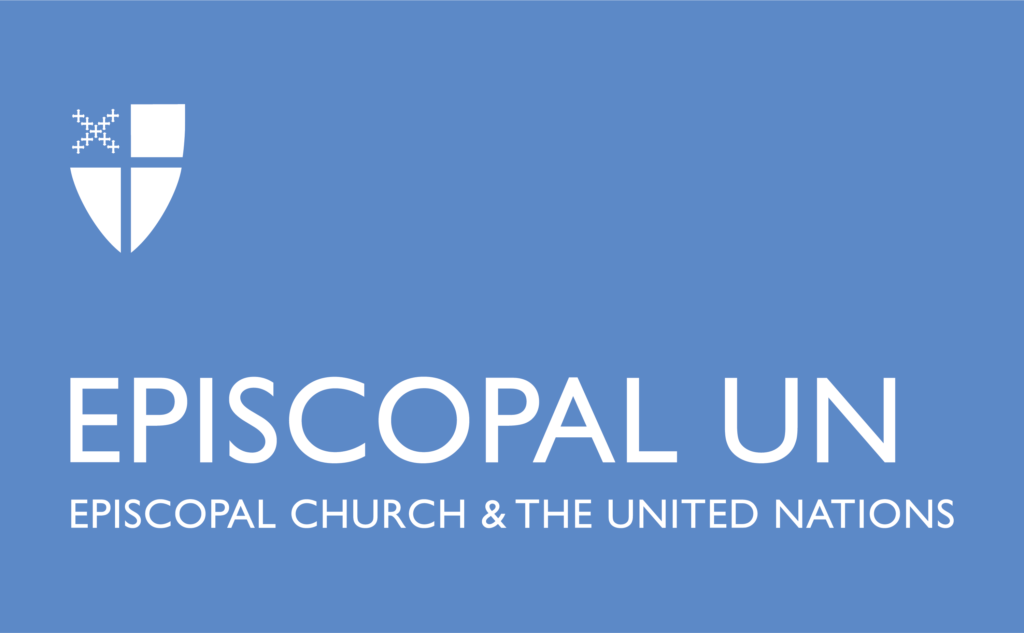A Call for Peace: Saving Women from Sexual Violence in Armed Conflict
By: Nancy Kaymar Stafford, Diocese of Rhode Island (Province I)
In 2012, I stood at the Genocide Museum in Kigali, Rwanda and was sickened by the crimes perpetrated against women and girls during the Rwandan Genocide. I had seen the same at Tuol Tleng in Phnom Penh, Cambodia several years earlier and heard similar stories from Croatian and Serbian women during a mission trip to regions of the former Yugoslavia. Women are consistently used as pawns during times of armed conflict. Rape, sexual mutilation, sexual humiliation, forced prostitution, forced pregnancy, forced marriage and sexual enslavement have been inflicted on women during war, as long as there has been war. The stories are harrowing; yet they are someone’s reality. Women in areas of armed conflict face these issues every day. This does not only happen during times of war. Non-state insurgent groups have committed similar atrocities against women.
Why? Why are women, who are generally non-combatants, the object of some of the most horrific acts of war violence? I believe it is because women continue to be treated as property. They are the “spoils of war”. Moreover, the conquered men are emasculated if they cannot protect their women. So, the conquering army further weakens its opponent by assaulting the women. In my opinion, the worst of these atrocities is forced pregnancy, which is solely for the purpose of ethic cleansing. Impregnating a woman who is of a perceived race dilutes her race mixing it with that of the rapist. This weapon of war was used extensively in the Yugoslavian and Rwandan conflicts. I spoke to many women from both conflicts that have serious psychological effects from being forced to have and raise their rapist’s child.
The Beijing Declaration and Platform for Action (A/52/231) states that “[v]iolations of the human rights of women in situations of armed conflict are violations of the fundamental principles of international human rights and humanitarian law.” This is true.
The Geneva Conventions of 1949 cover the international humanitarian laws related to armed conflict. The Fourth Convention is Relative to the Protection of Civilian Persons in the Time of War.[1] The Commentary to Article 13 notes that “the Geneva Conventions expressly stipulate that women are to be treated with all the respect due to their sex.” Article 27 offers women the following protections, “Women shall be especially protected against any attack of their honor, in particular against rape, enforced prostitution, or any form of indecent assault.” The commentary to this Article is clear that violent acts against women “are and remain prohibited in all places and in all circumstances, and women, whatever their nationality, race, religious beliefs, age, marital status or social condition have an absolute right to respect for their honor and their modesty, in short, for their dignity as women.” The wording is a bit antiquated and the phrase “due to their sex” is ambiguous, but clearly the drafters were aiming to protect women from sexual violence as a weapon of war.
A more succinct proclamation was given by the Committee that oversees implementation of the Convention on the Elimination of All Forms of Discrimination Against Women (CEDAW), in its General Recommendation 19,[2] noting that “[g]ender-based violence, which impairs or nullifies the enjoyment by women of human rights and fundamental freedoms . . . is discrimination” and that “[t]he right to equal protection according to humanitarian norms in time of international or internal armed conflict” is a fundamental right.
While these documents clearly affirm the right for women to be free from sexual violence in times of armed conflict, the violence continues. Indeed, the CEDAW Committee’s recommendation was made in 1992, just after the start of the Yugoslav War and two years before the Rwandan Genocide. Neither it, nor the Geneva Conventions of 1949, stopped violence from being perpetrated against women in these or subsequent conflicts.
Likewise, the United Nations efforts have had minimal impact. UN Resolution 1325 (2000)[3] calls for the protection of women and girls, especially as civilians, from conflict-related sexual violence and outlines gender-related responsibilities of the United Nations. In 2010, the UN passed Resolution 1960 to provide an accountability system for conflict related violence against women, because it remained “deeply concerned over the slow progress on the issue of sexual violence in situations of armed conflict in particular against women and children”.[4]
We must break the notion that sexual violence is an appropriate weapon of war. Women are not a commodity that can be used for tactical purposes. The UN calling for an accountability system is a good start. But a better answer would be to prevent war from starting. It is in the best interest of all humans to avoid war and look for non-violent ways for conflict resolution. More research needs to be done to understand the impact of armed conflict on women and the roles that they can play in preventing conflicts. Women have an important role in peacebuilding too. They need to not only have a seat at the table when these issues are addressed; they must also have a voice.
[1] A copy of the Convention can be found at https://www.loc.gov/rr/frd/Military_Law/pdf/GC_1949-IV.pdf.
[2] https://www.un.org/womenwatch/daw/cedaw/recommendations/recomm.htm#recom19
[3] https://undocs.org/S/RES/1325(2000)
[4] https://undocs.org/en/S/RES/1960%282010%29
_________________

About the author: Nancy is an attorney licensed to practice in New York State. She spent several years practicing as a corporate attorney before turning her focus to women’s rights as a supervising attorney for Georgetown University Law Center’s International Women’s Human Rights Clinic and for Emory Law School’s Feminism and Legal Theory Project. Ms. Stafford has worked extensively on women’s rights, particularly as they relate to the African continent, having published several articles and book chapters on the same. She is currently Chair Elect of the International Law Section and Member of the Advisory Council of the ABA’s Center for Human Rights.
Un llamado a la paz: Salvar a las mujeres de la violencia sexual en los conflictos armados
By: Nancy Kaymar Stafford, Diócesis de Rhode Island (Provincia I)
En 2012, estuve en el Museo del Genocidio en Kigali, Ruanda, y me sentí enferma por los crímenes perpetrados contra mujeres y niñas durante el genocidio de Ruanda. Yo había visto lo mismo en Tuol Tleng en Phnom Penh, Camboya, varios años antes y escuché historias similares de mujeres croatas y serbias durante un viaje misionero a regiones de la antigua Yugoslavia. Las mujeres se utilizan constantemente como peones en tiempos de conflicto armado. La violación, la mutilación sexual, la humillación sexual, la prostitución forzada, el embarazo forzado, el matrimonio forzado y la esclavitud sexual han sido infligidos a las mujeres durante la guerra, desde que ha habido guerra. Las historias son desgarradoras; sin embargo, son la realidad de alguien. Las mujeres en áreas de conflicto armado enfrentan estos problemas todos los días. Esto no solo sucede en tiempos de guerra. Los grupos insurgentes no estatales han cometido atrocidades similares contra las mujeres.
¿Por qué? ¿Por qué las mujeres, que por lo general no son combatientes, son objeto de algunos de los actos de violencia de guerra más horribles? Creo que se debe a que las mujeres siguen siendo tratadas como una propiedad. Son el “botín de guerra”. Además, los hombres conquistados son castrados si no pueden proteger a sus mujeres. Entonces, el ejército conquistador debilita aún más a su oponente al agredir a las mujeres. En mi opinión, la peor de estas atrocidades es el embarazo forzado, que tiene como única finalidad la limpieza ética. Impregnar a una mujer que es de una raza percibida diluye su raza mezclándola con la del violador. Esta arma de guerra se utilizó ampliamente en los conflictos de Yugoslavia y Ruanda. Hablé con muchas mujeres de ambos conflictos que tienen graves efectos psicológicos por verse obligadas a tener y criar al hijo de su violador.
La Declaración y Plataforma de Acción de Beijing (A / 52/231) establece que “[v] iolaciones de los derechos humanos de las mujeres en situaciones de conflicto armado son violaciones de los principios fundamentales del derecho internacional humanitario y de los derechos humanos”. Esto es verdad.
Los Convenios de Ginebra de 1949 abarcan el derecho internacional humanitario relacionado con los conflictos armados. El Cuarto Convenio se refiere a la protección de personas civiles en tiempo de guerra [1]. El Comentario al artículo 13 señala que “los Convenios de Ginebra estipulan expresamente que las mujeres deben ser tratadas con todo el respeto debido a su sexo”. El artículo 27 ofrece a las mujeres las siguientes protecciones: “Las mujeres estarán especialmente protegidas contra cualquier ataque a su honor, en particular contra la violación, la prostitución forzada o cualquier forma de atentado al pudor”. El comentario a este artículo es claro que los actos violentos contra la mujer “están y siguen estando prohibidos en todos los lugares y en todas las circunstancias, y las mujeres, cualquiera que sea su nacionalidad, raza, creencias religiosas, edad, estado civil o condición social tienen el derecho absoluto a respetar por su honor y su modestia, en definitiva, por su dignidad como mujeres ”. La redacción es un poco anticuada y la frase “debido a su sexo” es ambigua, pero claramente los redactores tenían como objetivo proteger a las mujeres de la violencia sexual como arma de guerra.
El Comité que supervisa la implementación de la Convención sobre la Eliminación de Todas las Formas de Discriminación contra la Mujer (CEDAW), en su Recomendación General 19, [2] hizo una proclamación más sucinta, [2] señalando que “la violencia basada en el género, que menoscaba o anula el disfrute por la mujer de los derechos humanos y las libertades fundamentales. . . es discriminación ”y que“ [e] l derecho a igual protección de acuerdo con las normas humanitarias en tiempo de conflicto armado internacional o interno ”es un derecho fundamental.
Si bien estos documentos afirman claramente el derecho de las mujeres a estar libres de violencia sexual en tiempos de conflicto armado, la violencia continúa. De hecho, la recomendación del Comité de la CEDAW se hizo en 1992, justo después del comienzo de la Guerra Yugoslava y dos años antes del Genocidio de Ruanda. Ni él ni los Convenios de Ginebra de 1949 impidieron que se perpetrara la violencia contra las mujeres en estos conflictos o en los posteriores.
Asimismo, los esfuerzos de las Naciones Unidas han tenido un impacto mínimo. La Resolución de la ONU 1325 (2000) [3] pide la protección de mujeres y niñas, especialmente como civiles, de la violencia sexual relacionada con los conflictos y describe las responsabilidades de las Naciones Unidas relacionadas con el género. En 2010, la ONU aprobó la Resolución 1960 para proporcionar un sistema de rendición de cuentas por la violencia contra las mujeres relacionada con los conflictos, porque seguía “profundamente preocupada por el lento progreso en el tema de la violencia sexual en situaciones de conflicto armado, en particular contra mujeres y niños”. [ 4]
Debemos romper la noción de que la violencia sexual es un arma de guerra apropiada. Las mujeres no son un bien que se pueda utilizar con fines tácticos. El llamado de la ONU por un sistema de rendición de cuentas es un buen comienzo. Pero una mejor respuesta sería evitar que comience la guerra. Lo mejor para todos los seres humanos es evitar la guerra y buscar formas no violentas de resolución de conflictos. Es necesario realizar más investigaciones para comprender el impacto de los conflictos armados en las mujeres y el papel que pueden desempeñar en la prevención de conflictos. Las mujeres también tienen un papel importante en la consolidación de la paz. No solo necesitan sentarse a la mesa cuando se abordan estas cuestiones; también deben tener voz.
[1] Se puede encontrar una copia de la Convención en https://www.loc.gov/rr/frd/Military_Law/pdf/GC_1949-IV.pdf.
[2] https://www.un.org/womenwatch/daw/cedaw/recommendations/recomm.htm#recom19
[3] https://undocs.org/S/RES/1325(2000)
[4] https://undocs.org/en/S/RES/1960%282010%29
______________

Sobre la autora: Nancy es una abogada con licencia para ejercer en el estado de Nueva York. Pasó varios años practicando como abogada corporativa antes de enfocarse en los derechos de las mujeres como abogada supervisora para la Clínica Internacional de Derechos Humanos de las Mujeres del Centro de Derecho de la Universidad de Georgetown y para el Proyecto de Teoría Legal y Feminismo de la Facultad de Derecho de Emory. La Sra. Stafford ha trabajado extensamente sobre los derechos de las mujeres, particularmente en lo que se refiere al continente africano, después de haber publicado varios artículos y capítulos de libros sobre el mismo. Actualmente es el presidente electo de la Sección de Derecho Internacional y Miembro del Consejo Asesor del Centro de Derechos Humanos de la ABA.


